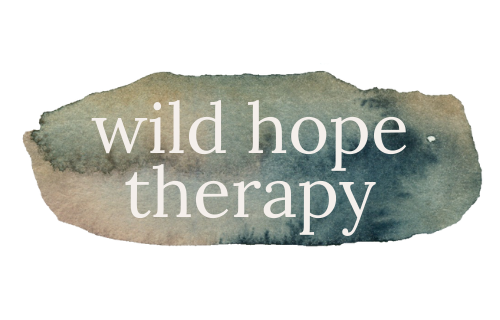book review: "Grief is Love"
by: samantha hoch, lpcc-s
Marisa Renee Lee is a particularly engaging writer, speaker, and entrepreneur. “Grief is Love” is a book about the author’s experience of grief that is relatable and validating to any person grieving the loss of a loved one. She gives her take on grief as it relates to her own experiences of racism, sexism, and oppression.
I picked up this book after listening to a moving interview with the author on the podcast “We Can Do Hard Things” with Glennon Doyle. I lost my father suddenly to a heart attack about a year and a half ago, so it seemed timely to read a story about grief. I had no idea how impactful this book would be for me, and now I recommend it to anyone who will listen!
When Lee was only 25 years old she lost her mother, Lisa, to breast cancer. She shares that she felt guilt and shame about expressing the feelings associated with grief, and the heavy mental and physical toll not processing her mother’s passing took on her. As an adult, Lee then lost what she calls a “very much wanted pregnancy,”and the experience of losing her mother shaped how she grieved the loss of her pregnancy later in life.
“Grief is Love” begins by offering the reader permission to feel their grief fully and without guilt, and to say “no” to anything that does not feel in line with their unique grieving process. In chapter 2, Lee labels the vulnerability involved in grieving and the importance of feeling safe to properly experience all of the emotions that occur in this process.
Later, in chapters 4 and 5, she provides guidance for navigating relationships in this complicated time. She encourages the reader to accept help from friends, family, and therapy–even when asking for help, or even receiving it, feels hard. Additionally, she gives words to the disappointing experience of friends and loved ones who don’t quite know how to show up for you, and the power of forgiveness and grace in these relationships.
While reading the book, I cried, laughed, and felt anger along with the author, as she effectively argues that every emotion you have related to your grief is okay and important to feel. The 8th chapter is especially helpful in this way, normalizing the confusing yet common experience of finding unexpected joyful moments while you are still grieving, and grief that pops up amidst joy.
Lee’s premise, that grief is love, reminds me of a quote I came across in my own grief journey by Jamie Anderson: “Grief, I’ve learned, is really just love. It’s all the love you want to give, but cannot. All of that unspent love gathers in the corners of your eyes, the lump in your throat, and the hollow part of your chest. Grief is just love with no place to go.” Lee tells us that the more you love someone, the stronger your grief will feel. She encourages us to continue to love those we grieve, “in the present tense.”
